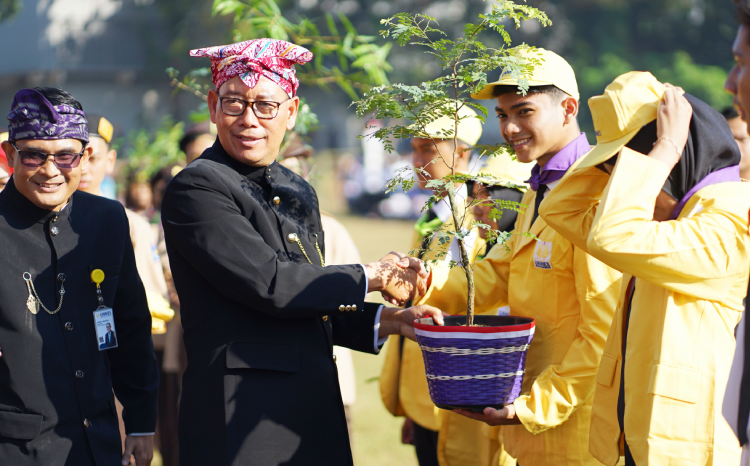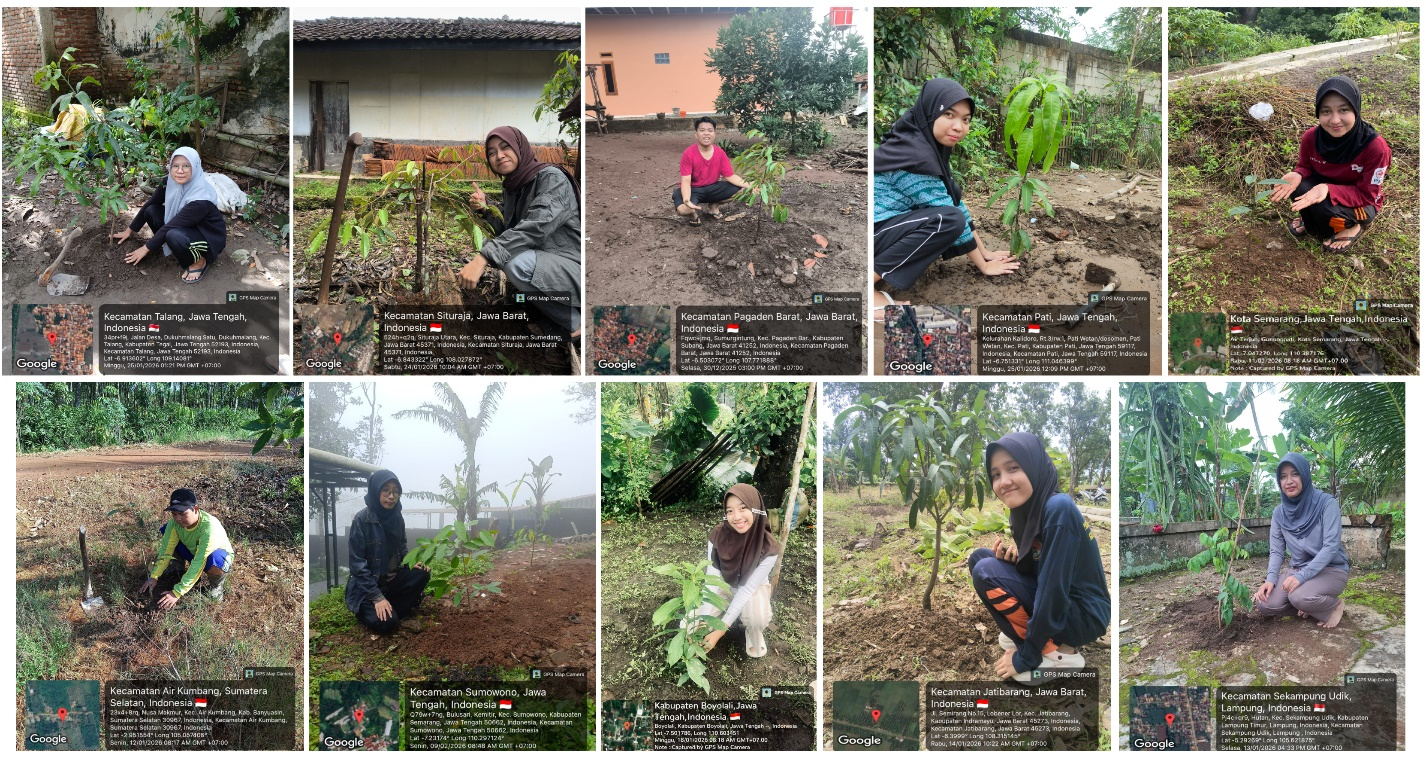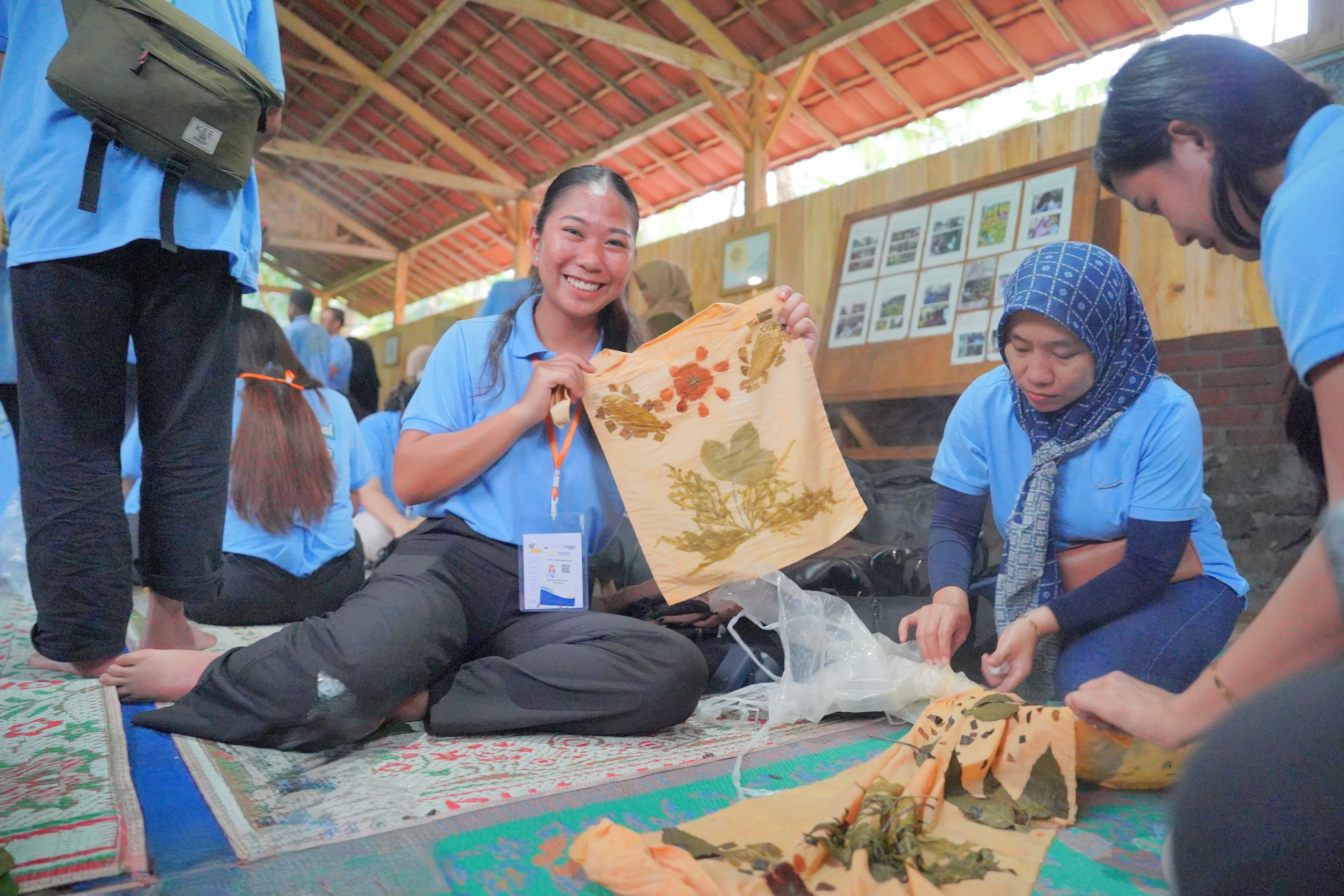One of the traditions in accepting new UNNES students is the handover of tree seedlings to new students. This tradition is carried out symbolically as a message for UNNES students to become pioneers in environmental conservation efforts in Indonesia.
Ten types of tree seedlings were handed over to students from 10 representatives of faculties and the Postgraduate School.
The tanjung tree was given to the Faculty of Education which contains inspirational values. Its flowers are useful as a fragrance for clothes, rooms and are also tough reforestation trees. This tree means advice for people to remember the teachings of morals and attitudes, always share goodness and worship God Almighty as the source of all inspiration.
The Tamarind tree was given to the Faculty of Languages and Arts. This tree is useful as a mixture of spices in Indonesian cuisine, and traditional herbal medicine. The tamarind tree means esem or a sweet smile which symbolizes the faculty of language and arts has a humanistic nature and always spreads friendliness.
The kemuning tree was given to FISIP as a symbol of conservation of caring values. This tree is traditionally used to maintain endurance, kidney disease, overcome toothache, and as other herbal medicines. The kemuning tree means clean and holy behavior and always cares for others.
The damar tree was given to FMIPA students as a symbol of innovative values. This tree is processed into copal and is preferred as a shade. The damar tree means that we should live like a lamp that provides light and enlightenment.
The sandalwood tree was given to FT which contains creative conservation values. Sandalwood is used as a fragrance in incense, cosmetics, perfumes, and for arts and crafts. The sandalwood tree means as a symbol of approaching God who has given creativity to mankind.
The kepel tree was given to the Faculty of Sports Science which upholds the value of sportsmanship. Kepel is used to maintain kidney health, this fruit is also favored by the palace princesses as a body fragrance. The kepel tree is a symbol of unity and mental and physical integrity, mensana in corpore sano.
The gayam tree was given to the Faculty of Economics which symbolizes the conservation value of honesty. The gayam tree is used as herbal medicine, beauty, and endurance. This tree means gayuh which means achieving goodness with honesty.
The Bodhi tree was given to the Faculty of Law which has the conservation value of justice. The Bodhi tree is a symbol of a sacred and mysterious tree, in addition to being useful as a shade tree, bodhi is also useful as an erosion preventative. This tree is planted as a symbol of Sidharta Gautama’s exemplary nature who always teaches justice for others.
The Mahkota Dewa tree is given to the Faculty of Medicine which has a healthy spirit. Mahkota Dewa fruit contains several active substances
that can neutralize toxins, antiviruses, antihistamines, and various other treatments. The Mahkota Dewa tree symbolizes the hand of God which is full of healing power and full of love in serving others.
The dewandaru tree is given to the Postgraduate School which upholds the value of Inspirational conservation. The dewandaru tree is useful as an antioxidant, and anti-cancer is believed in the Nusantara Community, the dewandaru tree is a symbol of the arrival of abundant sustenance, hopefully abundant for Postgraduate School students. The dewandaru tree is interpreted as the wood of the ‘Carrier of God’s Revelation’, which means bringing revelation and inspiration of brilliance.




